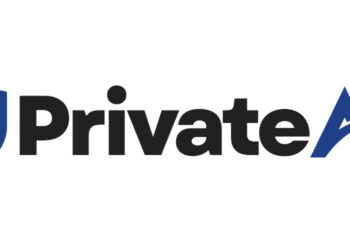 It’s no secret the massive troves of user-behavior data collected by companies of all stripes is of immense value to those companies. From Facebook and social media platforms to streaming services like Netflix, companies are increasingly basing their advertising, content production and budgetary decisions on extensive information they collect about their customers.
It’s no secret the massive troves of user-behavior data collected by companies of all stripes is of immense value to those companies. From Facebook and social media platforms to streaming services like Netflix, companies are increasingly basing their advertising, content production and budgetary decisions on extensive information they collect about their customers.
One of the ways companies like Netflix and Facebook use data is to mitigate the risks of their investments. In the case of Netflix and other platforms which have come to rely on original, proprietary content to drive and maintain their member bases, user-behavior data informs creative decisions in a fundamental way. This data provides a roadmap to consumer tastes and desires, enabling Netflix and other similar services to commission content with a higher degree of confidence that it will prove popular with their users.
In “The Second Digital Disruption: Data, Algorithms & Authorship in the 21st Century” a recent paper authored by law professors Kal Raustiala (UCLA) and Christopher Jon Sprigman (New York University), the authors argue that the success of MindGeek, the company behind Pornhub, Redtube, Brazzers, YouPorn and many other popular adult sites, is not only proof of the high value of such data, but an indication that as data-driven content production becomes the norm, the need for strong intellectual property law will lessen.
The title of the paper refers to what the authors see as two major market disruptions stemming from advances in digital technology.
“Two decades ago rising internet usage led to what we call the first digital disruption: Napster, file-sharing, and the transformation of numerous content industries, from music to news,” the authors state in the abstract. “The second digital disruption is about the age of streaming and, specifically, how streaming enables firms to harvest massive amounts of data about consumer preferences and consumption patterns.”
As Raustiala and Sprigman see it, “leading edge of this phenomenon – and the primary vehicle for our examination – is the adult entertainment industry.”
While many within the adult industry will quibble with the professors referring to MindGeek as “the little-known parent company of Pornhub,” their paper is a very intriguing read.
Asserting that MindGeek is “at the forefront of this new approach” of data-driven content production, Raustiala and Sprigman argue that the success of companies which take the data-driven approach “raise central questions about copyright’s dominant consequentialist justification.”
“In particular, the advent of data-driven authorship forces us to reassess some of the received wisdom regarding the centrality of copyright to creative production, and whether copyright’s traditional justification as a spur to creativity has much traction in a world where the ability to gather and analyze massive amounts of data is a central criterion, and perhaps, in the future, the central criterion, of creative success,” Raustiala and Sprigman write.
If you were to stop reading here, you might walk away with the impression that Raustiala and Sprigman are part of the “everything should be free” line of reasoning, or are hostile to copyright, full stop. The authors are careful to specify this isn’t the case, however.
“We want to be clear that our claim is not that intellectual property protection becomes unnecessary in a world in which the risk of creative failure is much reduced,” the professors write. “While data mining techniques and algorithms certainly help align content with preferences, they do not eliminate the risk of market failure. The risk of copying by others still justifies some legal protection even if producers are in a much better position than they are at present to anticipate what consumers want. The key question is how much protection is needed, and how the law can adapt to this new competitive terrain.”
The paper is long and wide-ranging, and as such its full contents can’t be comprehensively addressed or dissected here. The professors’ arguments about how and why data-driven content production could mitigate the need for stringent enforcement of copyright and other intellectual property law is well worth recounting though, even in truncated form.
“There are two chief risks for creative production,” Raustiala and Sprigman observe. “One is the risk of market failure – i.e., risk that no one wants to read, or watch, or listen to, or use, the work that the author creates. The other is the risk of market success – i.e., that the work proves to be popular, and that popularity attracts pirates whose unauthorized copies steal away potential customers for the author’s work.”
Having framed the two primary risks of creative production, the authors then turn to the contrasting roles of law and data in mitigating (or failing to mitigate) those risks.
“Intellectual property law, when properly designed and successfully implemented, can reduce the risk of success,” the authors write. “Indeed, the basic premise of copyright law is that the protection afforded helps reduce the risk that copyists will divert away from authors the returns from a successful work… In contrast, copyright (and IP rules generally) have no effect whatsoever on the risk of failure. For most works, the problem is not piracy but a lack of market demand. As a consequence, the risk of failure is at least as important to authors’ creative incentives as the risk of success.”
Essentially, Raustiala and Sprigman argue that a data-driven approach to content production provides more effective mitigation of risk than does the presence and application of IP law.
“In such a world (of data-driven authorship), it may be that producers – at least producers who have access to the massive quantity of consumer preference data that makes data-driven authorship possible – are no longer investing with the same fear of market failure,” they write. “They can invest with greater confidence. Data-driven authorship does not guarantee that works will not fail in the market. But it makes failure less likely.”
There is much more to Raustiala and Sprigman’s paper, of course, including several caveats and qualifiers which identify key differences between MindGeek and mainstream companies that could limit the utility of MindGeek’s data-driven business model to larger outfits with higher production costs.
Some readers will no doubt reflexively reject the professors’ assertions, a reaction the authors anticipate and address within the paper itself, in fact. Still, even if you think they’re flat wrong about copyright (or about MindGeek), their arguments and observations are well worth the time it takes to read them. Plus, appropriately enough given the gist of their arguments, the professors have made their work available on SSRN.com, a site to which anyone can register for free.












